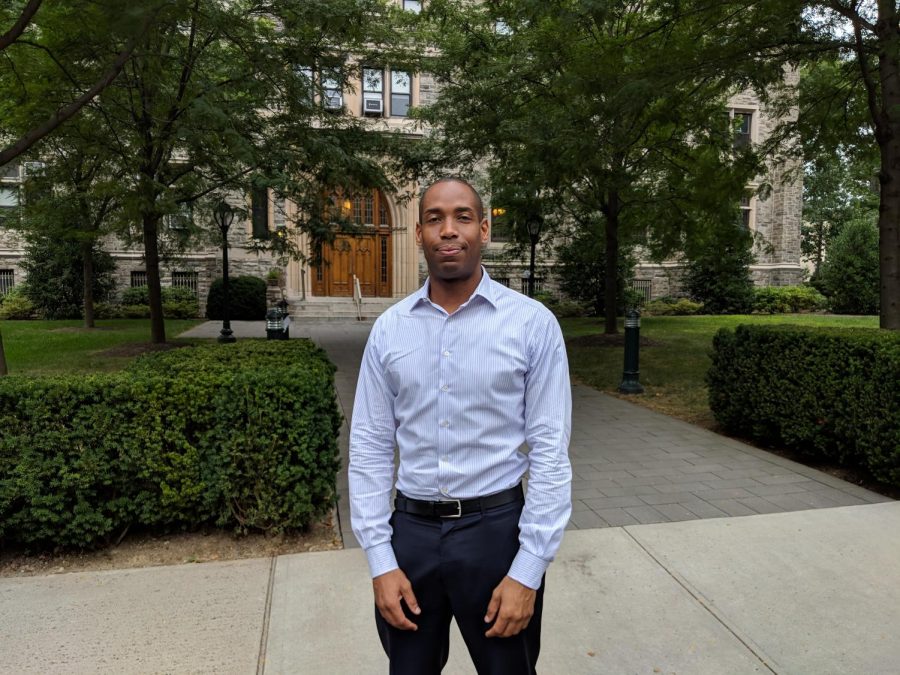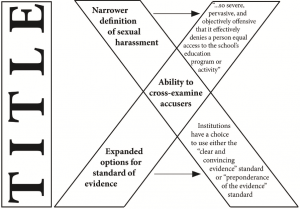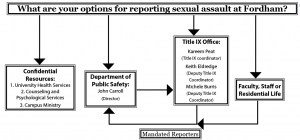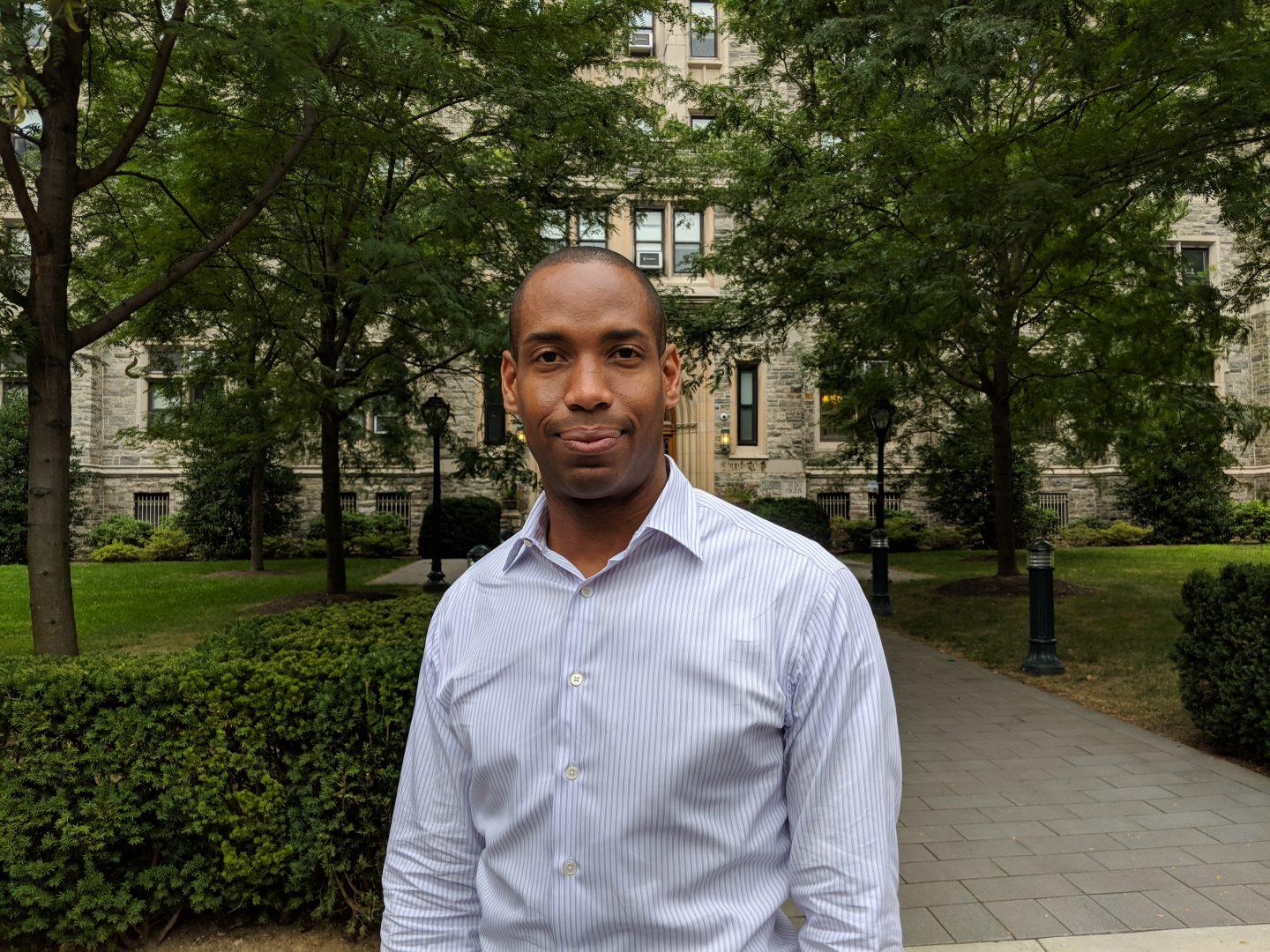Changes to Title IX Enact a Strict Burden of Proof
Following the recent changes to Title IX, Kareem Peat, Fordham’s Title IX Coordinator, has assured that the university “will continue to prohibit all conduct that is no longer covered under Title IX.” All reports of sex- and gender-based discrimination will be reviewed by the university in a considerate manner.
September 18, 2020
The U.S. Department of Education’s Office of Civil Rights (OCR) released changes to the regulations under Title IX, the civil rights statute that prohibits discrimination on the basis of sex at federally funded institutions. The changes were made on May 6, 2020 — the first major change ever on the issue of sexual harassment under Title IX.
Orientation leaders and orientation captains were informed of the Title IX changes during orientation training. Campus Assault and Relationship Education (CARE) is always a session included at orientation training that discusses Title IX. Keith Eldredge, dean of students at Fordham College at Lincoln Center (FCLC), held a Q&A-style information session to inform students of the changes.
“The changes are cowardly,” Orientation Captain Robert Sundstrom, FCLC ’22, said. “I think it’s another excuse for the Trump administration to roll back Obama protections put in place.”
The major change to Title IX is the repeal of the “Dear Colleague Letter,” which required colleges to use a “preponderance of evidence” standard in proceedings to determine whether the offender is guilty of sexual assault.
The “Dear Colleague Letter” was added in 2011 under former U.S. President Barack Obama. The standard equalizes the “quality” of evidence to the “amount” of evidence provided on behalf of the victim and offender. This standard strengthens the effectiveness of the college’s response to sexual assault cases, which encourages students to report their incidents of sexual assault.
Critics of this rule argue that it allows colleges to overly impose sexual misconduct and potentially leads to students being found guilty for false accusations, or creates a “presumption of male guilt” in sexual assault cases.
“[The university] will continue to prohibit all conduct that is no longer covered under Title IX.” Kareem J. Peat, Title IX coordinator
Arguments such as these overlook the nature of sexual assault issues as civil rights issues. Under federal case law, student-perpetrated sexual assault and rape are recognized as civil rights issues because they may prevent the victim from participating in education programs on the basis of sex.
The new guidelines place a more strict observance of the evidence in misconduct cases. It states that colleges can choose to use either the “preponderance of evidence” or the “clear and convincing” standard when adjudicating.
In a previous Title IX case at Fordham, former student Madeline Fabricant spoke to The Observer about her experience trying to secure sanctions against an abusive ex-boyfriend. Following the first set of decisions issued by Fordham to protect Fabricant, Eldredge cited a lack of evidence to support Fabricant’s “harsher allegations” that would have resulted in more serious consequences for her alleged abuser.
According to a 2016 campus climate survey Fordham conducted regarding sexual misconduct and the university’s Title IX processes, 8.33%, or 161 out of the 1,933 respondents, reported their incidents using the university’s procedures. Half of these students did not believe the process helped them at all, while the other half believed it helped in some way.
At this time, there is no knowledge of cases at Fordham in which the offender was initially apprehended and later found innocent.
In an email to the Fordham community on Aug. 28, Title IX Coordinator Kareem J. Peat stated that, regardless of the modifications, the university “will continue to prohibit all conduct that is no longer covered under Title IX, and the University will continue to address all reports of sex- and gender-based discrimination in a thoughtful, respectful manner.”
Beginning in June, more than 40 stories of sexual assault at Fordham were revealed on the Instagram account @letstalkaboutitfordham. The account began as a safe space for Fordham students to share stories of racial and sexual misconduct. The submissions from survivors of sexual assault come from both students and alumni.
In one anonymous story shared in late July, a student filed a report to Public Safety but said that “there was no type of support and no reassurance of my safety.” The student also said that Public Safety allegedly leaked their confidential information.
An anonymous senior said they felt supported through the process of reporting sexual harassment until they dealt with Public Safety and Counseling and Psychological Services (CPS). Public Safety allegedly discouraged an investigation and CPS neglected to follow up with the student. “When I needed CPS and Public Safety, neither of them could help me,” the student said.
The law also amended its regulations over the amount of responsibility colleges have in responding to misconduct complaints. Colleges are now required to respond to all complaints of sexual misconduct when they happen within “education programs” or events sponsored by the university.
“Program” is defined broadly and includes “locations, events or circumstances over which the school exercised substantial control over both the respondent and the context in which the sexual harassment occurred.” It also includes any building owned or controlled by a student organization. Harassment affecting students or employees that fall outside of these boundaries, colleges are not obligated to respond to.
“We had to ask repeatedly and explicitly for reassurance that students will be protected and get due process.” Kaitlin Cunanan, Gabelli School of Business at Lincoln Center ’22
For example, as most classes are functioning in a digital context now, an assault that happens over an online platform during a class or club meeting would be covered under these guidelines. However, sexual assault during a personal video call between students or employees is not grounds for an obligatory response from the university.
Universities may choose to respond to these incidents, but they will not be punished by the OCR if they decline the case.
Students were mainly concerned with how Fordham was going to react to the changes, according to Sundstrom. He explained that once Fordham revealed in the email from Peat that Fordham would continue to cover all misconduct that is no longer covered under the statute, students were not as concerned.
“People were generally pretty interested to know if we were going to maintain the level of safety in the past and once it became clear that we were, nobody really seemed to have any concerns,” Sundstrom said.
Orientation Captain Kaitlin Cunanan, Gabelli School of Business at Lincoln Center ’22, said she is also concerned about safety, as she is worried that students will be less protected by their institution.
“We had to ask repeatedly and explicitly for reassurance that students will be protected and get due process. Fordham speaks of the ‘cura personalis,’ but in the time of a pandemic and rising racial tensions and these changes, it’s hard to feel reassured that the university is caring for our fullest selves.”




















